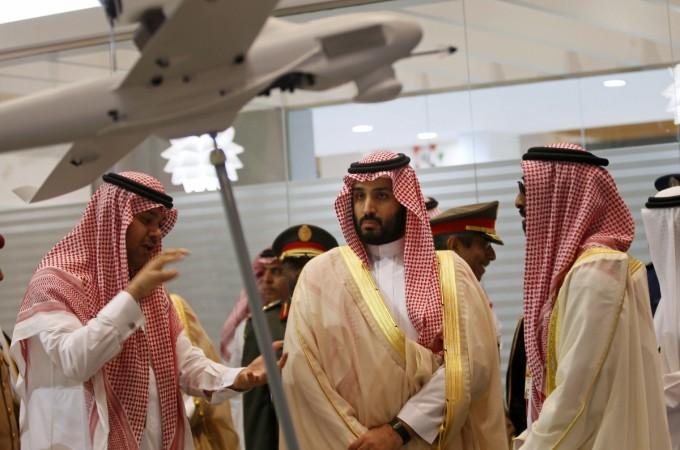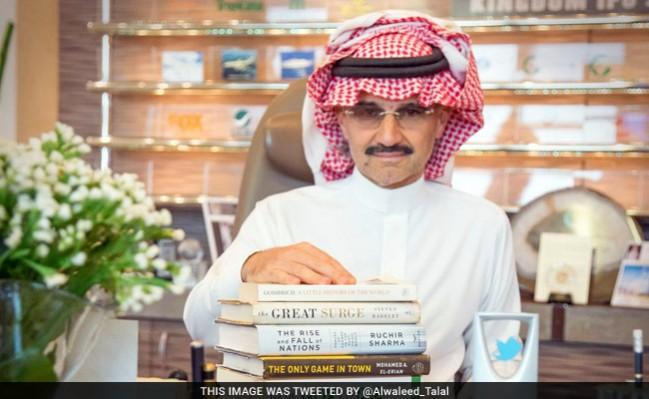
As shockwaves from the open purge in Saudi Arabia die down there's an unmistakable sense of equations changing forever in the country, and in the Islamic world. The Big Foot is stepping in and the spectral silence is broken by the sound of twigs crushing in the backyard. The steps are sure, slow and heavy.
The arrest of the high and mighty -- princes, pretenders and high-ranking royals - has been passed off as an earnest attempt at curbing corruption but that's only a posturing. The real question, even as the poster boy of 'modern' Saudi Arabia is under detention in Riyadh's Ritz Carlton -- is what's the real intention of Crown Prince Mohammad Bin Salman.
Political reform? Suppression of dissent? Consolidation of power? Wiping out extremism? Inviting foreign investment? Mollycoddling with the Trump administration in the US? The interpretations of the drastic move are numerous. And corruption appears to be the weakest of the reasons offered.
Doesn't Saudi Arabia suffer from corruption? It does, indeed. But Unlike in China, it has never been a spectre the nation publicly worried over. But yes, the 32-year-old MBS is obviously inspired by the Chinese, and of course the Russian, schema of sailing to absolute power on the anti-graft raft.
Vladimir Putin consolidated tenuous power he scooped up from the permafrost left by Boris Yeltsin by raising the spectre of corruption and pinning to the rug potential challengers like Mikhail Khodorkovsky and Boris Berezovsky. In China, President Xi Jinping got himself written into the Constitution and raised to the line of Mao Zedong and Deng Xiaoping by running a similar anti-corruption campaign.
![Saudi Arabia's King Salman attends a Memorandum of Understanding signing ceremony in Putrajaya, Malaysia February 27, 2017. [Representational Image] saudi king salman, saudi king salman to visit india, saudi king salman's india visit, india saudi arabia bilateral trade](https://data1.ibtimes.co.in/en/full/638752/saudi-king-salman-saudi-king-salman-visit-india-saudi-king-salmans-india-visit-india-saudi.jpg?h=450&l=50&t=40)
The Saudi Crown Prince -- who at 32, is actually after all a prince in a country where octogenarian princes have been warily waiting in a long line to be crowned as kings -- has now started off on an irreversible and perilous path, and that makes it hugely interesting to watch what happens in Saudi Arabia in many years to come.
Burden of statecraft
When his father King Salman took the throne in 2015 he was close to 80. His half-brother King Abdullah was 81 when he got the highest seat of power in the Islamic world. Another of MBS' uncles, King Fahd, was 61 when he became the king. For MBS, however, such a long 'princely' life isn't going to the there. Blood has been drawn and there's no going back.
In all likelihood, MBS has to bear the burden of statecraft for the next half a century. Yet that was not what any tarot reader could make of the tangled Saudi succession scenario back in 2015 when his father took power. Under King Salman, the young prince's powers swelled. His appointment as defence minister signalled he would travel far, but it was the palace coup in June that changed the game totally. That purge saw the crown prince getting arrested and MBS being elevated to that position. He also now got the all-important Interior ministry.
The latest purge saw the departure and possible arrest of the head of the famed Saudi National Guards. The last major assassination in the House of Saud was in 1975 when MBS' uncle, King Faisal, was shot point blank by his nephew. The innermost circle of the elite security apparatus around the Saudi royals is supplied by the National Guards and it is drawn from the intricate tribal system supporting the House of Saud. With the Guards now directly under him, MBS has insulated himself against any devious plan to unseat him.
Proxy war and its costs
All that's great but what's quite unclear is what exactly is the course of Saudi Arabia under MBS. Is it going to drift away from hardliner Wahabism? Will an epoch of 'moderate Islam' rise on the Saudi horizon? Are the clerics going to be sidelined? Or will they undergo a 'moderation' process under MBS? Is the country embracing western style capitalism as it tries to become less dependent on crude? Is Riyadh polishing its appeal as a global investment destination? Are changing regional geopolitics forcing the prince's hand?
Answers will come from Saudi Arabia and the impact of the changes there won't be limited to the country alone.
The news of the arrest of ministers and princes, including billionaire businessman Alwaleed bin Talal, came hours after Riyadh narrowly escaped from a missile attack from the Houthi rebels in Yemen. The two-year-long Yemen campaign was hard-sold by MBS -- against the conventional wisdom of staying away from direct conflicts. Now, the proxy war isn't winning and its overreaching aim of stopping the rise of Iran has become rather counterproductive. As usual, failure sets bloodhounds behind you and the obvious reaction is to steamroller all possible dissent.

Hadiths on review
Another useful backdrop of the latest purge is an announcement made by King Salman last month. He set up the King Salman Complex for the Prophet's Hadith, an unprecedented step that aimed to study anew the contents of the Hadiths and to verify if people are following any fake precepts. While the key target was the Salafists in the country, at a broader level this would be hugely unpopular with the ultra-conservative clergy. More battlefronts to cover for MBS as he ploughs onward.
The grave economic challenges the Kingdom faces might have also warranted an ultimate amalgamation of power. The inevitable diversification of the economy requires vast capital inputs even as the war in Yemen resulted in a huge drain. Some sections of the Arab press believe Alwaleed Bin Talal refused to underwrite the economic plan. It's perplexing how MBS would vouch for an investment-friendly Riyadh when the country's most successful businessman sits in jail.
Challenges will be hard for MBS as he tries to become the latest secular, moderate (and benevolent) despot in the Islamic world. The critics have already warned him against waving in the 'outdated Orientalism'.








!['Lip lock, pressure, pyaar': Vidya Balan- Pratik Gandhi shine in non-judgmental infidelity romcom Do Aur Do Pyaar [ Review]](https://data1.ibtimes.co.in/en/full/797104/lip-lock-pressure-pyaar-vidya-balan-pratik-gandhi-shine-non-judgmental-infidelity-romcom.jpg?w=220&h=138)








